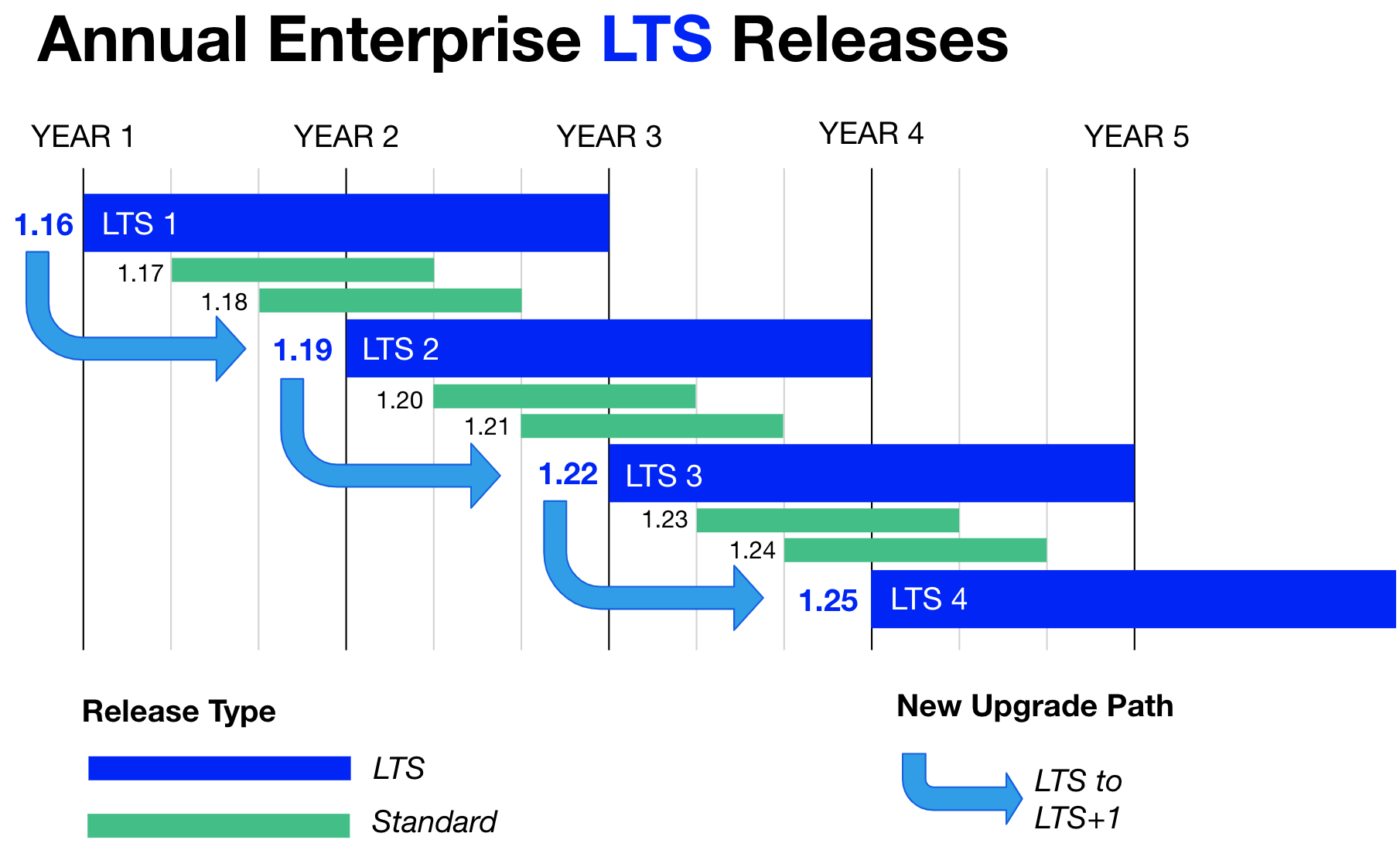We are pleased to announce a Long-Term Support (LTS) release program for HashiCorp Vault Enterprise, starting with version 1.16 series. Going forward, the first major Vault release of each calendar year will be an LTS release.
»The challenge: Balancing operational overhead with timely upgrades
Vault’s Enterprise product support policy has traditionally maintained N-2 releases, meaning that bugs and vulnerabilities will continue to be addressed in the current major version and the previous two. For example, once 1.16 is generally available, 1.15 and 1.14 will keep receiving patches, but 1.13 will no longer receive updates and is effectively no longer a supported version.
The N-2 window presents a challenge for some customers to stay up to date as it requires updates to new major versions at least once a year. Customers often use Vault in a mission-critical workflow and may not have the resources to perform minimal-downtime upgrades (such as autopilot upgrades or, SOP upgrade procedure) or prepare necessary testing to certify a new version of Vault. However, customers who don’t upgrade miss out on critical fixes and security patches once they’re out of the N-2 window.
»The solution: Long-Term Support releases
After receiving significant customer interest in longer support windows, we are happy to announce Long-Term Support (LTS) for Vault Enterprise. LTS helps customers reduce the time and effort required to upgrade their releases, lowering risk and improving operational efficiency by providing a single major version to receive critical bug and security fixes for up to two years.
Vault Enterprise joins other HashiCorp commercial products in offering LTS with the following key characteristics:
- Extended maintenance: An additional year of minor releases containing fixes for critical bugs and security vulnerabilities, for a total of two years
- Efficient upgrades: Support for direct upgrades from one LTS release to the next, to support variable customer timelines and reduce operational overhead

»Getting started with Vault Enterprise LTS
Vault Enterprise 1.16 release series is the first long-term support release of self-managed Vault. To upgrade your Vault Enterprise deployment to an LTS version (1.16.X), refer to Vault’s upgrade documentation. Once you’re running a maintained version of Vault Enterprise LTS, HashiCorp recommends upgrading once a year to the next LTS version. The next LTS Vault release will be 1.19. This upgrade pattern ensures your organization is always operating a maintained release, minimizes major version upgrades, and maximizes predictability for planning purposes.
For more information, refer to the Vault Enterprise LTS documentation and to HashiCorp’s multi-product LTS statement.
»Next steps for HashiCorp Vault
- Get started with Vault through our many tutorials for both beginners and advanced users.
- Learn more about Vault Enterprise’s capabilities by starting a free trial.








